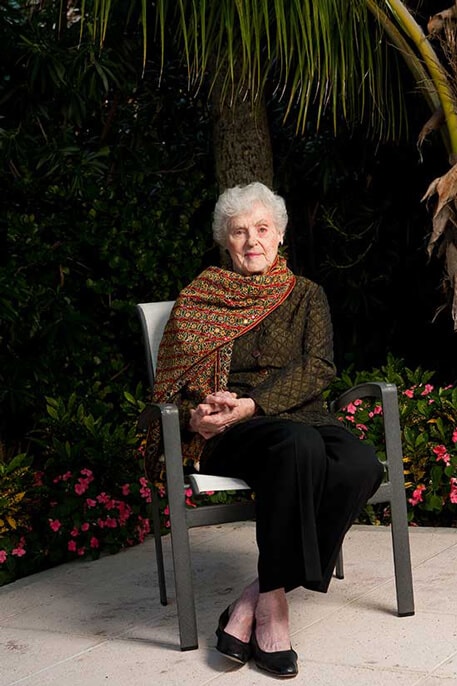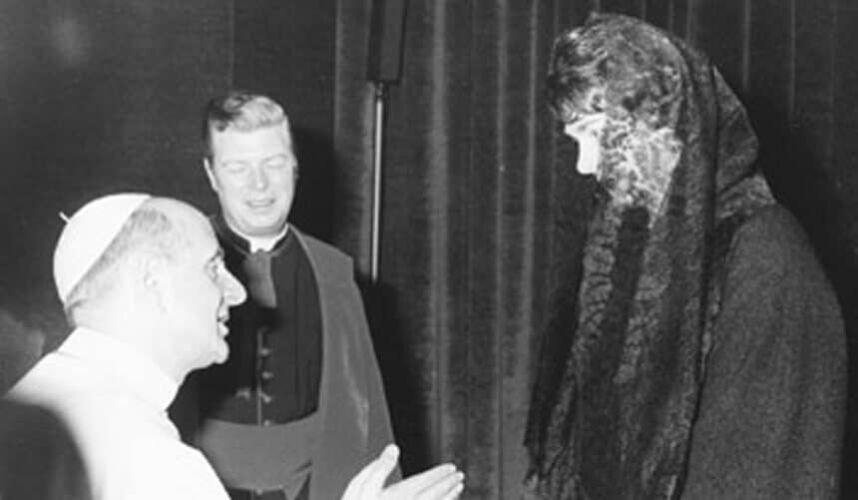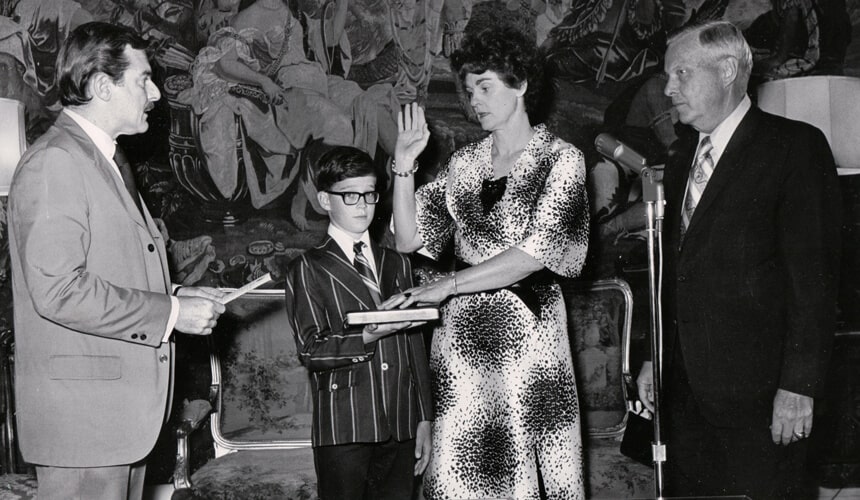Jean Wilkowski
From Bottom of the Barrel to Top of the World
In 1943, life was going smoothly for 23-year-old Jean Wilkowski MA1944. As a staff member at Barry College in Miami (now Barry University), she was teaching journalism courses and writing for the college’s public relations office. She was even working on and off toward a master’s degree.
Then a pestering priest showed up, and everything changed.
“Your education has given you a firm sense of morality and ethics, and that is very much needed in government and international affairs today,” Reverend Joseph Thorning told her while visiting Barry after a trip to Peru. He sensed Wilkowski’s interest in international affairs — though at the time, her only international experience included a couple of childhood sports camps in Cuba.

Over 35 years in the U.S. Foreign Service Jean Wilkowski became one of the top U.S. diplomats.
Thorning badgered Wilkowski into considering the U.S. Foreign Service until she finally went to Washington, D.C., to meet with a recruiter at the height of World War II.
“The man who interviewed me told me I was lucky,” she said. “Because of the war, they were ‘scraping the bottom of the barrel’ — those were his words — taking 4-Fs [men whose health made them unfit for military service] and women as vice consuls. But I didn’t dare to take offense at being put at the bottom of the barrel. And so in spite of that — and even though I didn’t know exactly what a vice consul did — I enrolled in the foreign service training course.” In 1944, she boarded a plane to her first assignment in Trinidad.
Over the next 35 years, Wilkowski became one of the top U.S. diplomats, serving in Colombia during a revolution and Honduras, where she rose to prominence for coordinating the U.S. relief effort after the 1969 “Soccer War.” In all, she held posts in eight countries on three continents. Along the way, she developed expertise in international commerce, and one of her biggest accomplishments was to negotiate for policies that led to the creation of the World Trade Organization.
First of her kind
In 1972, Wilkowski was invited to become the first female U.S. ambassador to serve in an African nation. “Imagine, being offered an ambassadorship and not immediately accepting it — after 28 years in the Foreign Service and at 52 years of age! Talk about naïve, or was I just frightened of the future? Probably both,” she wrote. She served in Zambia for four years and helped to shift American policies in the region.
After retiring from the Foreign Service, Wilkowski kept busy with projects at the United Nations, multinational food companies, and humanitarian missions until her death in 2016 at age 97.
“Who would have thought that a young girl born in Rhinelander, Wisconsin, in the early part of the 20th century, the tallest in her class and always in the back row so the other children could see the teacher, would become a United States ambassador and travel around the world?” she wrote in her autobiography, Abroad for Her Country. “Never in my wildest dreams while growing up did I have any such aspirations.”
 44° F
44° F

